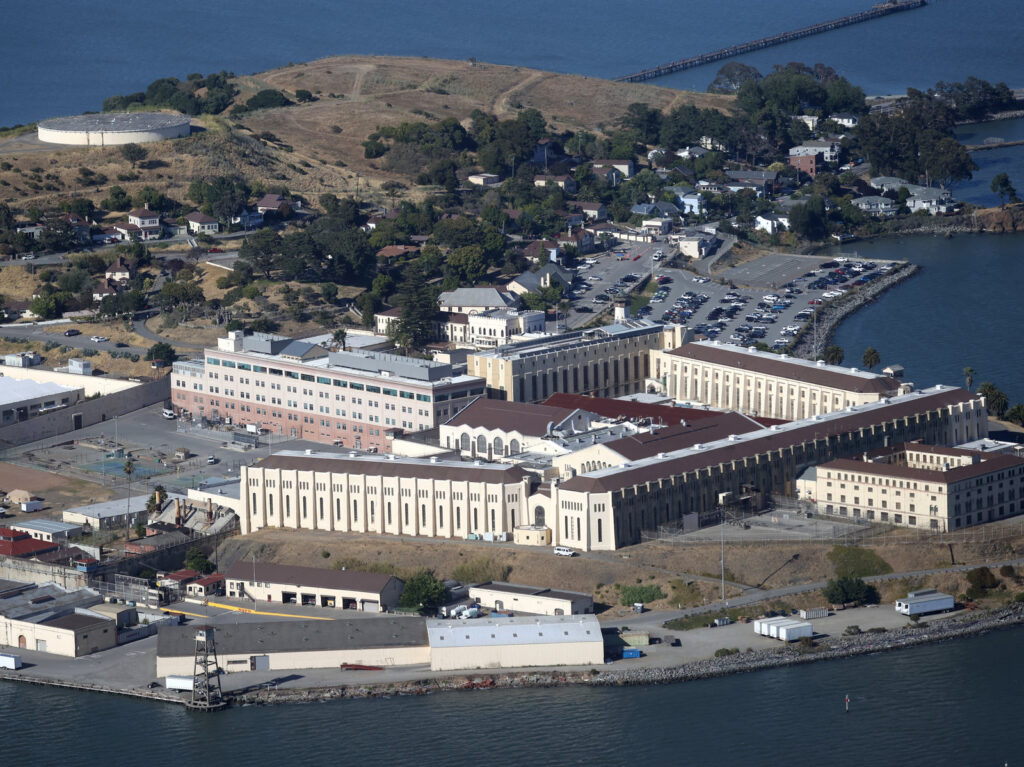Leaving Prison In The COVID-19 Economy


Listen to the recording of this episode of NPR’s The Indicator from Planet Money featuring R&R here. Below is a transcript of the episode.
CARDIFF GARCIA, HOST: Hey, everyone. Cardiff here. This is THE INDICATOR FROM PLANET MONEY. Cade Lambeth (ph) is 25. He lives in California. And in April, Cade was released from prison, where he’d just served three years for a series of charges that included second-degree burglary and possession of a stolen vehicle. Cade had a checklist of important things he wanted to do now that he was out of prison. He wanted, for example, to get a new social security card, find housing, get a job. But before he could do any of those things, he first needed to get a new ID.
CADE LAMBETH: So they let me out of prison with just a regular California ID. But my picture was from, like, 2014. And myself – I’m transgender, so just being in there, you know, going through my transition (laughter) – I look a lot different than my picture, so that was a huge problem for me because people were like, this isn’t you, you know what I mean? So I’m like yes, it is, you know? So a lot of things were held back. And, like, the DMV was closed. Like damn, what do I do?
GARCIA: The DMV was closed because of COVID-19, and Cade’s inability to get that new ID led to a cascading series of problems in trying to rebuild his life. And even once he did finally get it, he had to try finding a job in an economy that had suddenly collapsed. Today on the show – leaving prison to reenter the workforce and society is always hard, but those usual difficulties have been made a lot worse by the coronavirus pandemic. It has devastated the economy, and it has also made it so much harder to go through the simple bureaucratic transactions that are needed to participate in the economy in the first place.
(SOUNDBITE OF MUSIC)
GARCIA: When Cade Lambeth left prison in April, it was clear to him that the coronavirus pandemic was going to make his reentry into society a lot harder.
LAMBETH: With COVID, everything was a lot more difficult. And it took me forever just to be able to get my Social Security card. And like immediately, when I’m out, I’m like, OK; I got to do everything right, so I’m trying to get a hold of my probation officer.
GARCIA: Cade says even that, even checking in with his probation officer, was logistically complicated because of COVID because sometimes, when he would go to the probation office, the specific officer that he really needed to see wasn’t there because a lot of those officers were working from home. And Cade also received a stimulus check from the government as part of the bill that it passed in responding to the pandemic. That was money that Cade really needed, except he could not cash the check because the clerk at Walmart did not think his old ID was really him. Plus, Cade really struggled to find housing.
LAMBETH: And there was nothing available. Like, there’s no resources. Everybody’s like, nope. Like, everything’s full. From the homeless shelters to the programs that they had, like, there – the waiting lists were months long – months long – like, 90 days at the least.
GARCIA: So Cade moved in with his brother, who lives in a different county in California from the county that Cade had been released into. And helpfully, all DMVs across California were finally opened by June 11. So two months after leaving prison, Cade finally had an ID. And he started applying for jobs at fast food places, gas stations, grocery stores. It has not gone well.
LAMBETH: Eventually, like, I was just like, OK, I can’t get a job anywhere, so let me go through a temp agency because that’s easy. But it is really hard with the pandemic because everything’s closed. Even some fast food places, they were just like, oh, we’re staying with the staff that we have because you’re only allowed so many people at work and, you know, just little things like that. And it’s like, dang; I can’t even get a job at a fast food place right now. What’s going on, you know?
GARCIA: Sandra Johnson is the in-prison program coordinator at Root & Rebound, which is a nonprofit that focuses on helping people reenter society after prison. Cade himself has received help from Root & Rebound, and Sandra says she also was once incarcerated. She remembers how frustrating it was to find work after she left prison.
SANDRA JOHNSON: I must’ve filled out, like, 50 applications. Once you fill out an application and that question is on there – have you been convicted of a felony? I knew why I wasn’t getting called back.
GARCIA: The obvious problem, Sandra says, is that employers are just less willing to hire people who are formerly incarcerated. So when she helps people like Cade, she has to find employers who are willing.
JOHNSON: We call them second-chance employers. So we’ve gathered lists of employers that will not look at a person’s criminal record first.
GARCIA: That stigma that comes with hiring formerly incarcerated people exists all throughout the economy. In fact, the stigma is so widespread that economist Steven Raphael actually wrote a book about it. And he even titled the book “The New Scarlet Letter? Negotiating The U.S. Labor Market With A Criminal Record.”
STEVEN RAPHAEL: There is quite a bit of evidence to suggest that employers are apprehensive about hiring people who have criminal histories and people who are coming out of prison and, oftentimes, will actually either ask about criminal histories or formally screen on criminal histories by actually reviewing the person’s criminal history record.
GARCIA: Now, a number of U.S. states and Washington, D.C., have actually passed laws that prohibit companies from asking job applicants about their criminal backgrounds until after the companies have made a job offer. But economists are still debating the effects of these laws, and a lot of companies have just ignored the laws anyways. And regardless, the data on people entering the labor force after leaving prison still seems to reflect this hesitation to hire people who were once imprisoned.
So Steven has looked at a range of studies, and here’s what he found. Take the entire population of men in the U.S. in their prime working years, so that’s usually thought to be roughly the mid-20s through about the mid-50s. Well, typically, about 80% or more of them would have a job. But for those same men who were once incarcerated, only about 30- to 50% have a job, depending on the study. So it’s just a huge difference between men who were once incarcerated and men who were not. And Steven says it’s not just the stigma that prevents formerly incarcerated people from getting hired. They also tend to enter the labor market with other disadvantages as well.
RAPHAEL: We can think of former inmates as trying to supply their labor to the market. And common supply-side problems that might make it difficult to find and maintain employment include relatively low education, poor work histories – right? – or, you know, not a lot of work experience prior to being incarcerated.
GARCIA: Before the coronavirus pandemic started earlier this year, there had been signs that things were finally going to improve in the labor market. The market had been so strong, and so many people were already employed that a lot of businesses were starting to consider hiring people that, in the past, they might have discriminated against, like people who were formerly incarcerated. But the pandemic has now reversed that progress. Unemployment has shot up as tens of millions of people have found themselves out of work, so people who were formerly incarcerated now have a lot more competition for getting a job; competition with people who don’t face the same barriers and stigma that they have to face.
RAPHAEL: I couldn’t imagine a worse time to be looking for work. And I think it’s got to be all the more difficult for somebody who is trying to reenter society when society is in complete disarray.
GARCIA: According to a 2013 study from the Brookings Institution, about a third of people who were once incarcerated eventually returned to prison, and Steven says having to enter a bad labor market probably makes this more likely.
RAPHAEL: So there’s research that shows that people who are released into local labor markets that are strong tend to – first of all, they’re more likely to find jobs, and they’re also less likely to be returned to custody.
GARCIA: That same study from Brookings found that only about 55% of people released from prison earned any income at all from working in the first year that they were out. And out of those who did earn some income, half of them made less than roughly $10,000 in that first year, so they’re really struggling. And also, all of these trends make economic racial inequality much worse because incarceration rates are so much higher for African Americans in particular. For his part, Cade Lambeth says that he himself does not have any income coming in right now other than food stamps, and he’s still actively looking for a job.
LAMBETH: You’re calling places, and they’re like, oh, you know, this pandemic’s got everything on hold right now. And it’s like, oh, man. You try not to lose the hope in the middle of everything, but it’s kind of stressful. Like, for me, like, I got myself together, and I’m trying to get out and do good. And, you know, like, there are some days when I’m just like, man, it’d be easier for me to go back to my old ways selling drugs or something, you know, just to make fricking (ph) a dollar, you know? Dang.
GARCIA: This episode of THE INDICATOR was produced and reported by Camille Petersen, and it was fact-checked by Brittany Cronin. Our editor is Paddy Hirsch, and THE INDICATOR is a production of NPR.
MORE POSTS
Are California prisons stiffing inmates on $200 release payments? Lawsuit...
Lawsuit Challenges Unfair Background Check System in the Oil Refinery...
Root & Rebound Receives $2 Million Gift From the Yield...

Sign Up
Join our mailing list.

